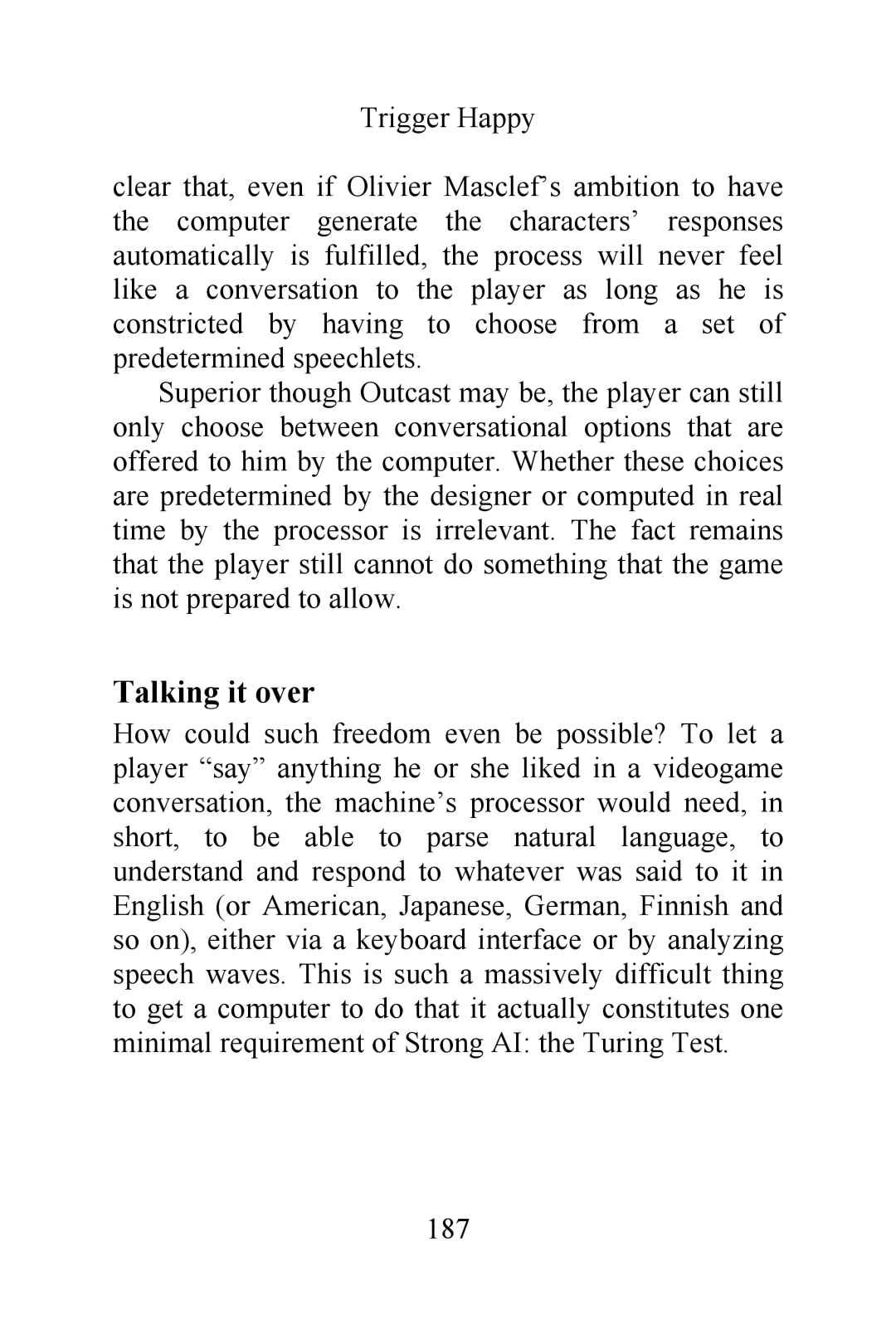Trigger Happy
clear that, even if Olivier Masclef’s ambition to have the computer generate the characters’ responses automatically is fulfilled, the process will never feel like a conversation to the player as long as he is constricted by having to choose from a set of predetermined speechlets.
Superior though Outcast may be, the player can still only choose between conversational options that are offered to him by the computer. Whether these choices are predetermined by the designer or computed in real time by the processor is irrelevant. The fact remains that the player still cannot do something that the game is not prepared to allow.
Talking it over
How could such freedom even be possible? To let a player “say” anything he or she liked in a videogame conversation, the machine’s processor would need, in short, to be able to parse natural language, to understand and respond to whatever was said to it in English (or American, Japanese, German, Finnish and so on), either via a keyboard interface or by analyzing speech waves. This is such a massively difficult thing to get a computer to do that it actually constitutes one minimal requirement of Strong AI: the Turing Test.
187
